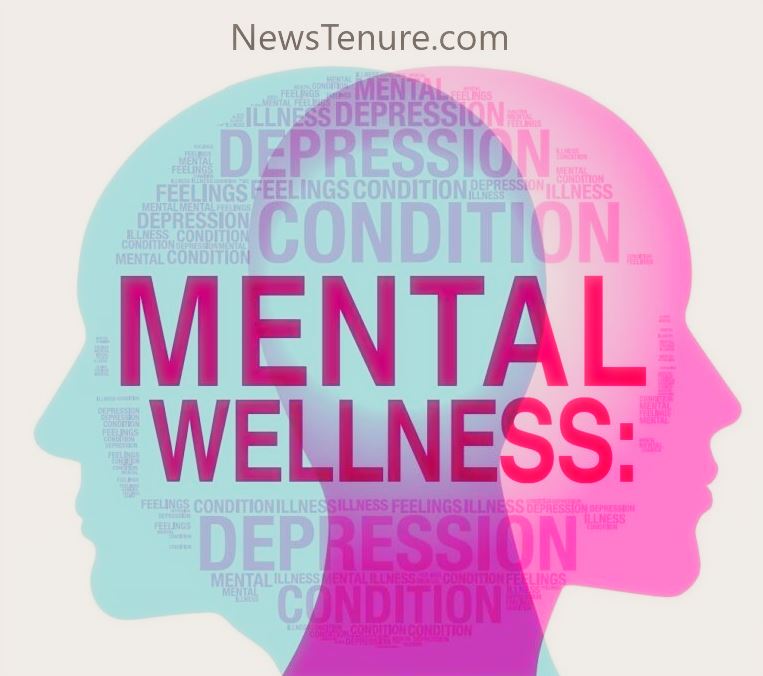Maintaining good mental health is essential for overall well-being and quality of life. In today’s fast-paced world, it’s crucial to prioritize our mental well-being and adopt strategies that promote a healthy and balanced mind. In this article, we will explore various ways to improve mental health and provide practical tips for incorporating these strategies into our daily lives.
Prioritize Self-Care
Self-care is a fundamental aspect of improving mental health. It involves dedicating time and attention to activities that promote well-being, relaxation, and self-reflection. This can include engaging in hobbies, practicing mindfulness or meditation, getting sufficient sleep, eating a balanced diet, and exercising regularly. By prioritizing self-care, we nurture our mental resilience and create a foundation for better mental health.
Foster Healthy Relationships:
Nurturing healthy relationships is crucial for our mental well-being. Surrounding ourselves with supportive and positive individuals who uplift us, listen to us without judgment, and offer encouragement can have a profound impact on our mental health. It’s important to communicate openly, express our emotions, and seek help when needed. Building and maintaining strong connections with family, friends, and communities provide a sense of belonging and support.
Practice Stress Management:
Stress is a common aspect of life, but excessive or chronic stress can take a toll on our mental health. Developing effective stress management techniques can help improve mental well-being. Strategies such as deep breathing exercises, engaging in relaxation techniques like yoga or tai chi, journaling, or engaging in creative outlets can reduce stress levels and promote a sense of calm. It’s important to identify stress triggers and implement healthy coping mechanisms to manage them effectively.
Cultivate Positive Thinking:
Our thoughts greatly influence our mental health. Cultivating a positive mindset involves challenging negative self-talk and embracing a more optimistic outlook. It can be helpful to practice gratitude by acknowledging and appreciating the positive aspects of our lives. Engaging in affirmations, visualizations, and focusing on self-compassion can also contribute to a healthier mental state. By intentionally shifting our thinking patterns, we create space for optimism and resilience to flourish.
Seek Professional Support:
Sometimes, improving mental health requires professional support. If you are experiencing persistent or overwhelming mental health challenges, seeking help from a mental health professional is a vital step. Therapists, psychologists, or counselors can provide guidance, support, and evidence-based interventions tailored to your specific needs. They can help you navigate emotional difficulties, develop coping strategies, and promote personal growth.
Engage in Mindful Technology Use:
Technology has become an integral part of our lives, but it’s essential to use it mindfully to safeguard our mental health. Set boundaries on screen time, create tech-free zones or periods, and engage in activities that promote face-to-face interactions. Use technology as a tool for personal growth, such as accessing educational resources, mindfulness apps, or online support communities. Being mindful of how technology affects our mental well-being allows us to make intentional choices for a healthier balance.
Engage in Regular Physical Exercise:
Physical exercise not only benefits our physical health but also has a profound impact on our mental well-being. Regular exercise releases endorphins, often referred to as the “feel-good” hormones, which can boost mood and reduce symptoms of anxiety and depression. Engaging in activities such as walking, jogging, dancing, or participating in sports can improve overall mental health and provide a sense of accomplishment.
Practice Mindfulness and Meditation:
Mindfulness and meditation practices help cultivate present-moment awareness and promote a state of calm and clarity. By focusing on the present and observing our thoughts and emotions without judgment, we can reduce stress, enhance self-awareness, and improve overall mental resilience. Incorporating even a few minutes of mindfulness or meditation into our daily routine can have significant benefits for our mental health.
Set Realistic Goals and Celebrate Achievements:
Setting realistic goals and working towards them can instill a sense of purpose and fulfillment. Break down larger goals into smaller, achievable tasks and track your progress. Celebrate each milestone along the way, no matter how small. Recognizing your accomplishments boosts self-confidence and motivation, contributing to improved mental well-being.
Take Breaks and Practice Restorative Activities:
In our busy lives, it’s important to take breaks and engage in activities that promote relaxation and restoration. Engage in hobbies you enjoy, whether it’s reading, painting, playing a musical instrument, or spending time in nature. Engaging in activities that bring you joy and allow you to recharge can significantly improve your mental health.
Limit Exposure to Negative Influences:
Negativity, whether it comes from social media, news outlets, or toxic relationships, can impact our mental well-being. Be mindful of the content you consume and the people you surround yourself with. Seek out positive and uplifting sources of information and maintain healthy boundaries with negative influences. Surround yourself with positivity and seek out supportive and like-minded individuals.
Practice Gratitude and Acts of Kindness:
Cultivating gratitude and engaging in acts of kindness can have a profound impact on our mental health. Regularly expressing gratitude for the positive aspects of our lives fosters a sense of appreciation and contentment. Additionally, performing acts of kindness towards others not only benefits them but also boosts our own well-being. It can be as simple as offering a listening ear, volunteering, or engaging in random acts of kindness.
Conclusion
Improving mental health requires a holistic approach that encompasses various aspects of our lives. By engaging in regular physical exercise, practicing mindfulness, setting realistic goals, taking breaks, limiting exposure to negativity, cultivating gratitude, and engaging in acts of kindness, we can promote a positive and balanced mental state. Remember, it’s important to be patient and kind to yourself throughout the journey of improving mental health. Small, consistent steps towards self-care and self-improvement can lead to significant positive changes in your overall well-being.




